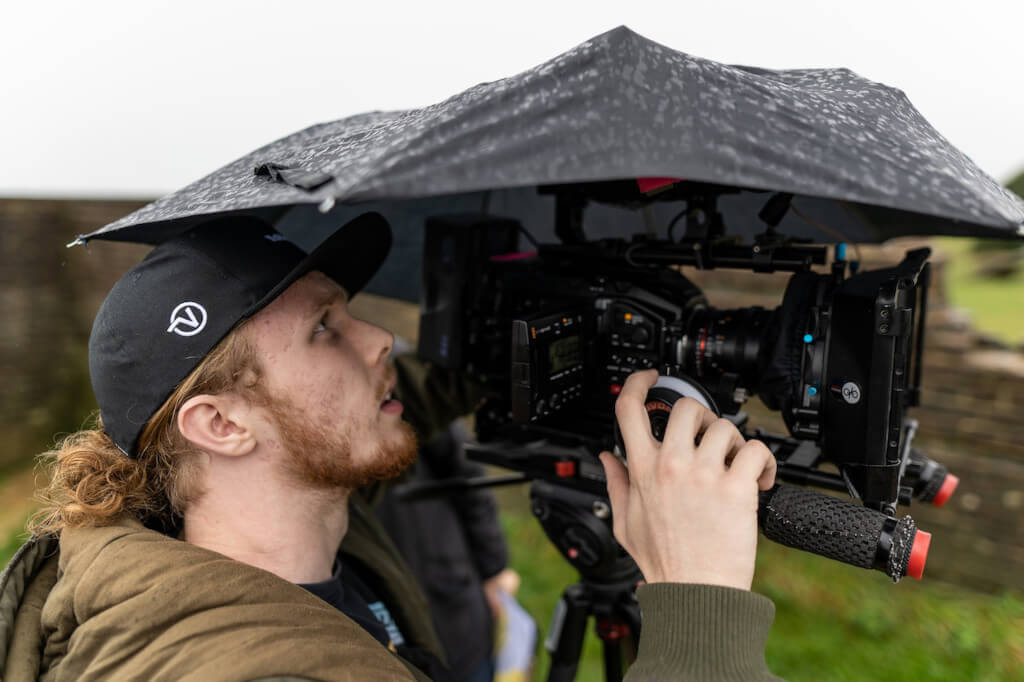
There is a significant role for impartial films and film producers in the current state of the media environment. However along with all of that inventive filming comes the hard challenge that looms over every production: film financing. For any artistic vision to become a reality, there is an absolute requirement for an exhaustive and copious amount of financial resources. Finding financing for any venture, regardless of its size, can be a challenging endeavor. Fortunately, there is a diverse terrain of film funding available for impartial filmmakers and initiatives that can financially assist your vision. In this article, we will discuss where to look for funding, how to apply for them, and the distinctions between subsidies and other kinds of financing.
What Exactly Are Film Grants, Though?
Grants for the film industry are financial aid provided by various organizations to help finance film production. Grants for filmmakers typically take the form of financial assistance; however, the assistance could also take the form of services or equipment.
They provide financial assistance for a wide variety of film productions, which places them within the larger category of film funding grants. Grants for documentaries, grants for short films, and even grants for student films are some of the types of grants that are commonly available. There are ways to support your production in today’s vast landscape of grants for film projects, regardless of the scale of your project or the scope of the available grants.
What Are the Key Differences Between Fellowships, Grants, and Laboratories?
When it comes to obtaining funding for films, subsidies are just one alternative among many. There are also film externships and film labs available for film funding.
There is a significantly more implicated partnership with the organization that is approving the fellowship when it comes to film. The monitoring of the fellowship review panel will typically continue throughout the project’s entire duration and will also require the recipient to perform some form of assistance for the company.
The provision of mentoring and artistic help is generally the primary focus of film labs. During the writing process, shooting, or proofreading, certain filmmakers are selected to engage in labs, which integrate them with lab mentors and colleagues inside the initiative. The availability of financing in labs is not the primary emphasis of these prospects; rather, the emphasis is on assistance and collaboration.
You can find listings for all of these various types of production backing by searching any film grant database online. There is a wide variety of movie financing and institution mentoring available; the important thing is to select the one that is most suitable for yourself and your venture.
Why Give Money to Movies?

When collaborating in the universe of individual filmmaking, you need to be resourceful when it comes to film financing, and applying for subsidies for film productions is a fantastic way to get your vision supported. Film subsidies, in many respects, mean funds with the greatest amount of creative leeway.
The vast majority of film funding will not inevitably be enough to fund your entire production; however, they are an excellent way to increase your spending plan. This is because funding received through film grants does not require repayment.
You will also have a greater degree of control over the way that the money is spent if you receive a grant. Even though specific grants (such as funding for media equipment, subsidies for the drafting stage, subsidies for specific locations, etc.) have requirements dictating how the funding should be used, the vast majority of grants award unrestricted funds that can be used by the production company in any way they see fit. Many people find that subsidies for film productions offer funding opportunities with the fewest constraints and the greatest amount of creative leeway.
In addition to the financial assistance, the awarding organization will typically require an acknowledgment for its contribution to the film along with regular status reports on its progress throughout the production process. These subsidies for filmmakers emerge with a certain level of reputation as well as networking opportunities, both of which could be useful to your production. If it comes down to it, as a self-governing filmmaker, how can you possibly turn down money that is offered to you for free with no (or very few) long-term commitments?
When is the Optimal Time to Submit an Application for Funding to Make a Film?
When looking into different grant prospects, there are a few things you’ll want to keep in mind first and foremost. The typical pre-production phase of obtaining film financing already includes the process of applying for and receiving grants. When your venture has reached the point where you can provide a pitch and a potential cost estimate, you will have all of the required supplies to submit a proposal for a film production fund.
The most important thing for you to consider is when their due dates are. And believe me, you won’t be able to miss them. Although some grants acknowledge candidates on an ongoing basis, the majority of funding has time constraints for when applications must be submitted.
The majority of applications require that you include an artist declaration, a procedure for your film, and a breakdown of your spending plan in your submission. In addition, many applications will require letters of recommendation from previous employers or professors.
Allow yourself four to five months to conduct studies and put together the application materials for the film grant, at the very least for an initial couple of rounds. This will provide you with the time you need to adequately prepare your components, communicate with potential recommenders, and send everything promptly while still maintaining a comfortable margin of error.
The great news is that after you have finalized one film grant application parcel for a venture, you will already have the majority of the framework for other funding agencies, including your financial plan and artist declaration. The deadline for submitting applications for film grants varies from company to company. The announcement of the film’s final financing status can take anywhere between 4 months to an entire year. Therefore, when you are browsing these websites in search of film financing, be sure to select funding whose timeframe is compatible with the overall purview of your venture.
Which Film Grant Would Be Most Beneficial to You?
When perusing a lengthy list of funding, it is simple to feel confused and overpowered by the ample supply of funding opportunities. The scale of your project, the type of movie you want to make, and the topics of interest you have will evaluate which film production grants you are eligible for and which ones you want to undertake. You should also think about the distinctions that exist between financing a film through a non-profit organization, a corporation, or the government.
Creatives and initiatives that are reflective of the quest of non-profit organizations can apply for grants. Donations, grant programs, and contributions from businesses are typically where they get their funding. In most cases, the funds for business grants come from an organization’s interaction and engagement budget. When it comes to film grants and productions, corporate entities almost always back endeavors that serve to advance their particular interests.
As soon as you start looking through any lineup of film funding, you will need to determine which criteria of the grants are relevant to the size, duration, and type of project you are working on. Grants for films can fall into several categories, the most common of which are documentary film grants, short movie grants, motion picture grants, and student film grants.
They can be broken down into a variety of distinct requirements inside each of these classifications. When it comes to funding for storytelling films, “feature films” are defined as those that are greater than 90 minutes. The length of a novelist’s short film grant is typically less than ninety minutes. Nevertheless, these requirements are not established in advance and change based on the type of project being funded, particularly grants for documentaries. Documentary films typically deem a feature to be an hour long, whereas the standard length for a fiction feature is 90 minutes.
Subsidies for film production are constantly expanding well beyond the conventional conception of what a film is. As a result of the proliferation of narrative in modern media, numerous associations are now providing financial support for narratives that investigate virtual reality and augmented reality, as well as other forms of engaging storytelling. Keep in mind that the term “film funding” now encapsulates a wider world, and there are funds available for you to utilize even if you are concerned that subsidies for filmmakers won’t be able to cover the costs of an ongoing experiment.
You’ll also find a growing proportion of film financing intended to promote diversification in the film business listed in every funding directory you look through. Broadening the imaginative perspectives within the industry through the provision of financing for African filmmakers, other people of color, LGBTQ+, and women. These subsidies for filmmakers are well deserved and represent an invaluable tool that can be pursued for the financing of both feature-length and short films.



